Who lives in our mouth?
Categories: Health and Medicine | Healthy lifestyle | People | Society | World
By Vika https://pictolic.com/article/who-lives-in-our-mouth.htmlLooking at these photos, you might think that these are some kind of exotic plants or landscapes taken from space. But no. In the photo, the inhabitants of our oral cavity are many times enlarged: plaque, microorganisms, etc. The pictures were taken using an electron microscope and they are a reminder of the importance of observing oral hygiene.
14 PHOTOS
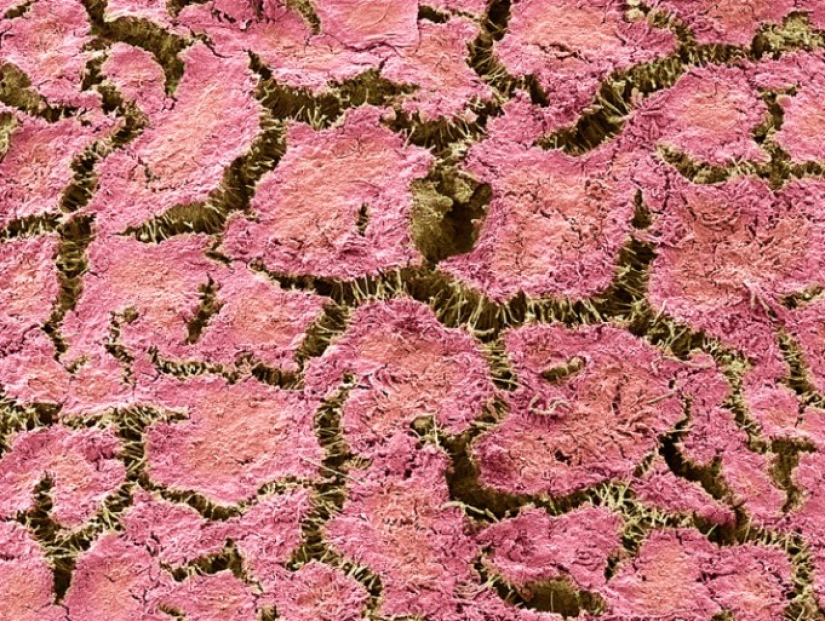
1. Dental plaque at 400x magnification. In fact, it is a bacterial colony that attaches to the surface of the tooth.
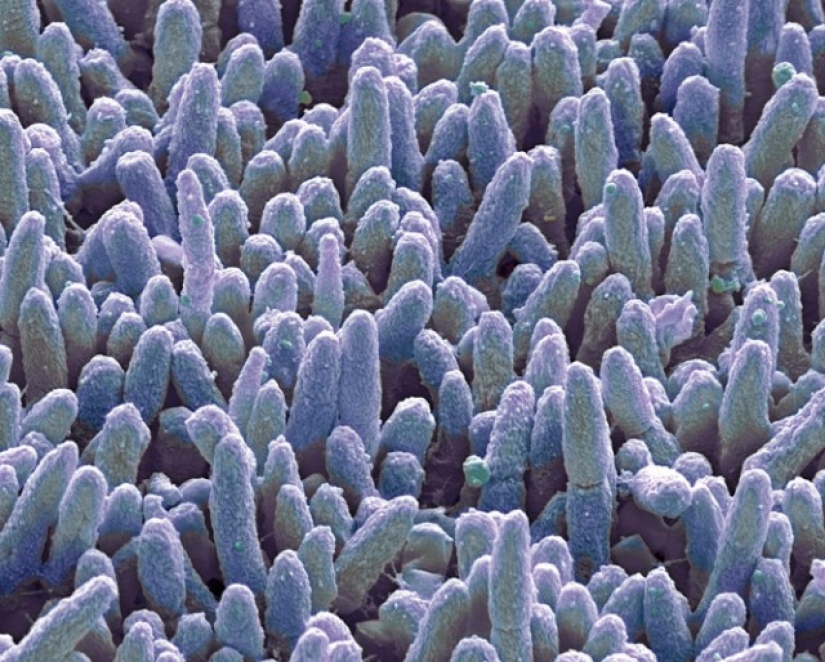
2. Dental plaque increased by 10 thousand times.
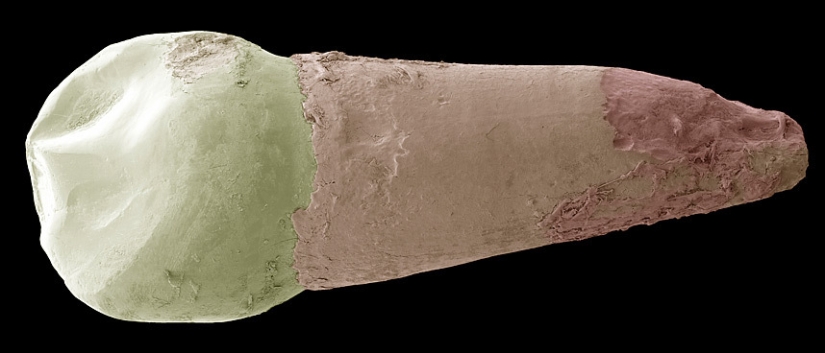
3. Milk tooth. Most of the human tooth is made up of dentin, a solid that envelops the pulp, which contains blood vessels and nerves that can only be seen by sawing a tooth or taking an orthopantomogram (x-ray of the tooth). The crown of the tooth is covered with enamel (the white part of the tooth in the photo). Enamel protects dentin from acids in the mouth. Dentin at the root of the tooth is protected by root cement.
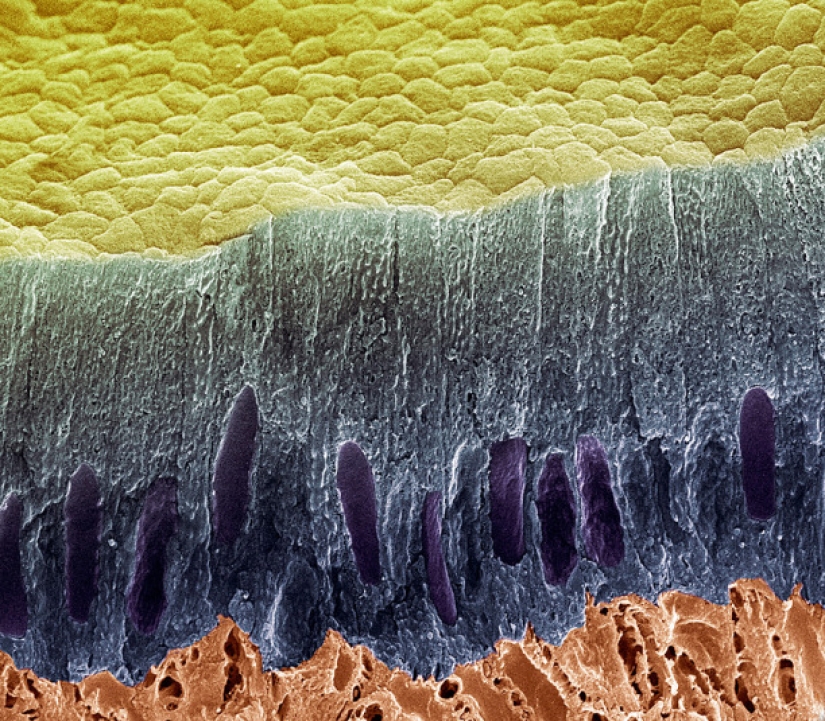
4. Section of the tooth showing the enamel layer (blue) and dentin (red). Damage to the enamel opens the dentinal tubules - the porous substance of dentin.
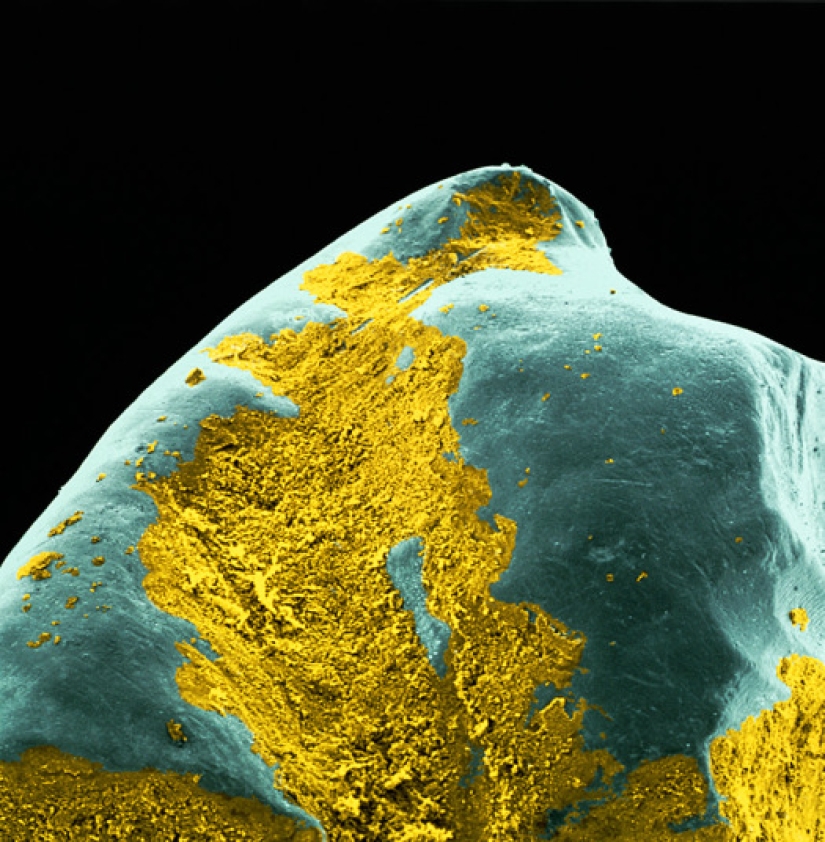
5. Bacterial yellow plaque on the tooth surface. The acid, which is formed as a result of the deposition of waste products of bacteria on the surface of the tooth, can damage the enamel and cause tooth decay.
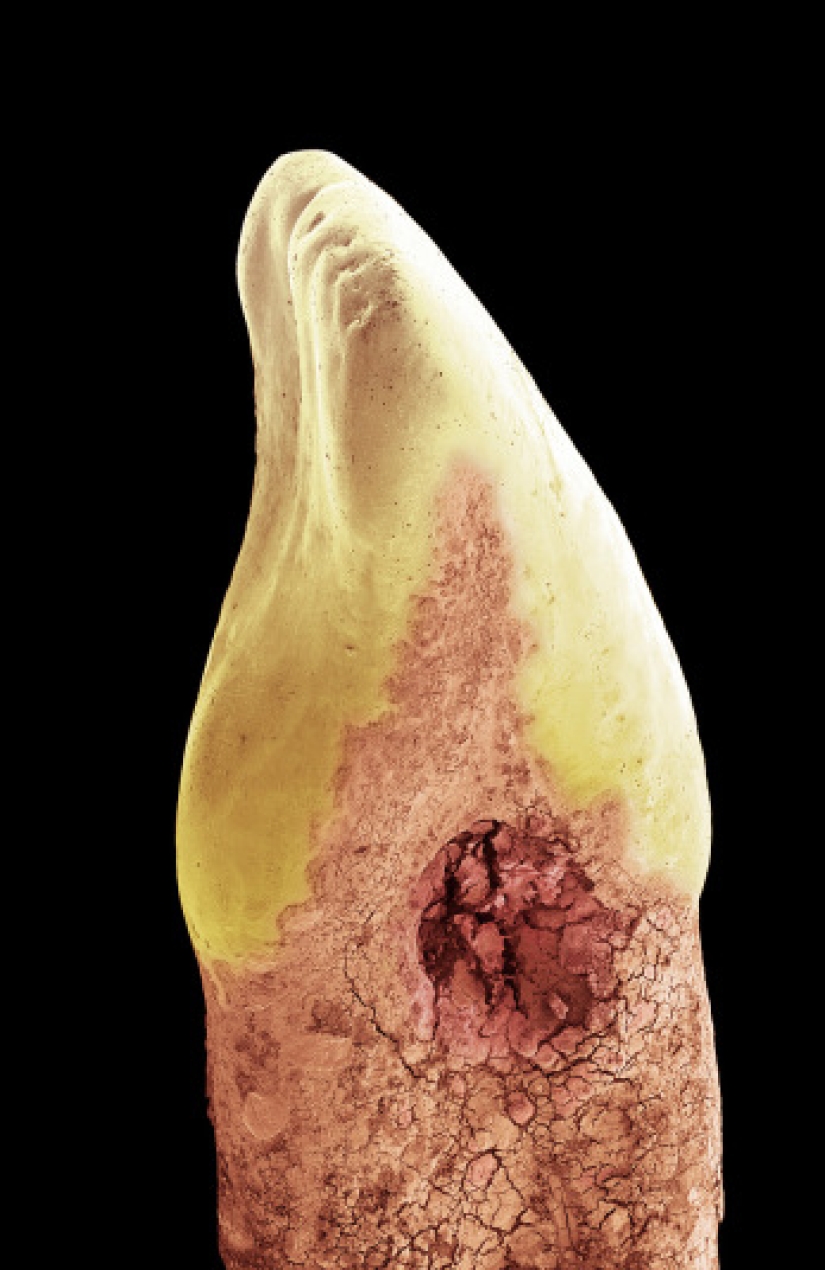
6. Damaged collapsing cutter.
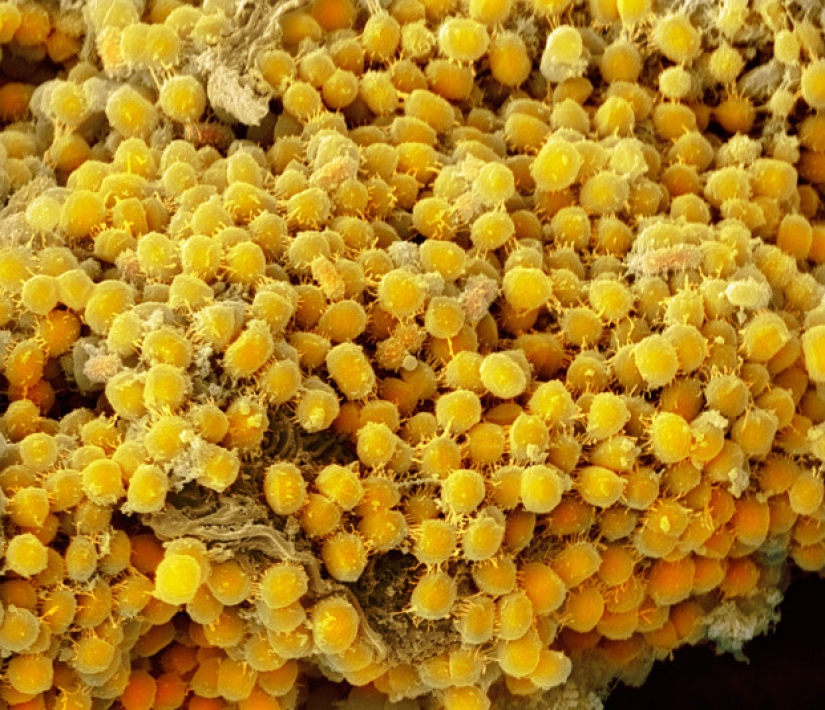
7. Bacteria that cause gum diseases such as gingivitis and periodontitis.
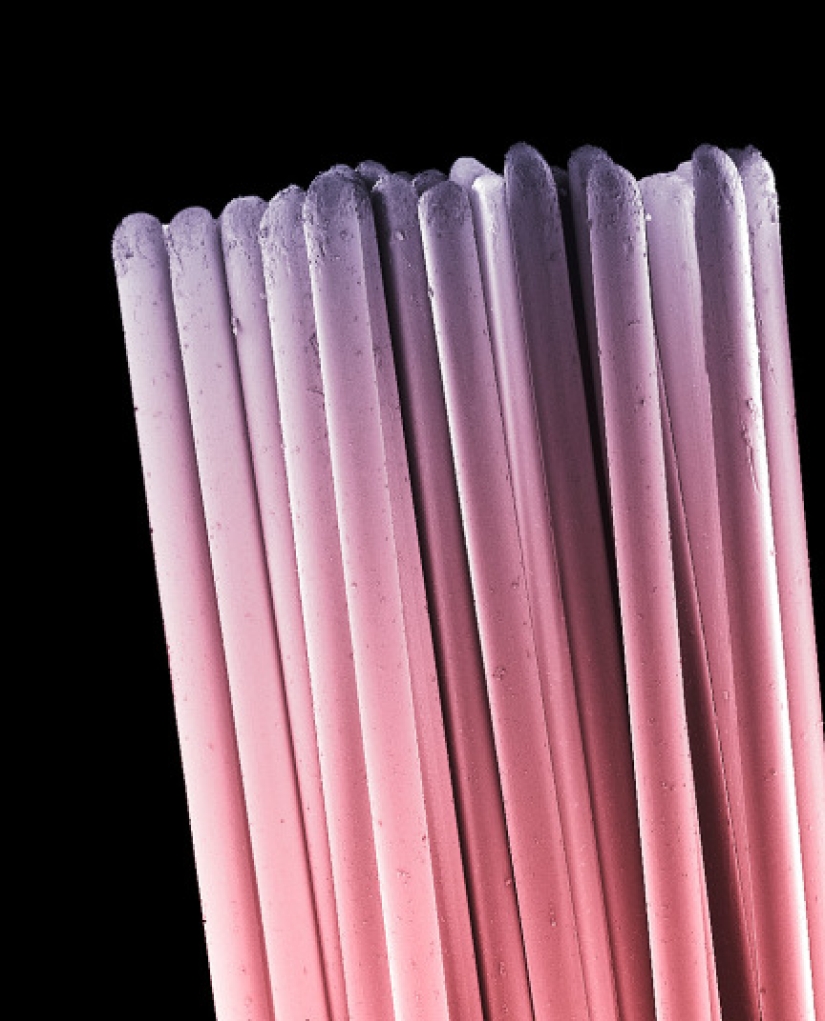
8. Toothbrush bristles. Worn bristles reduce the effectiveness of brushing your teeth. It is recommended to replace the brush at least every three to four months. Sometimes and more often.
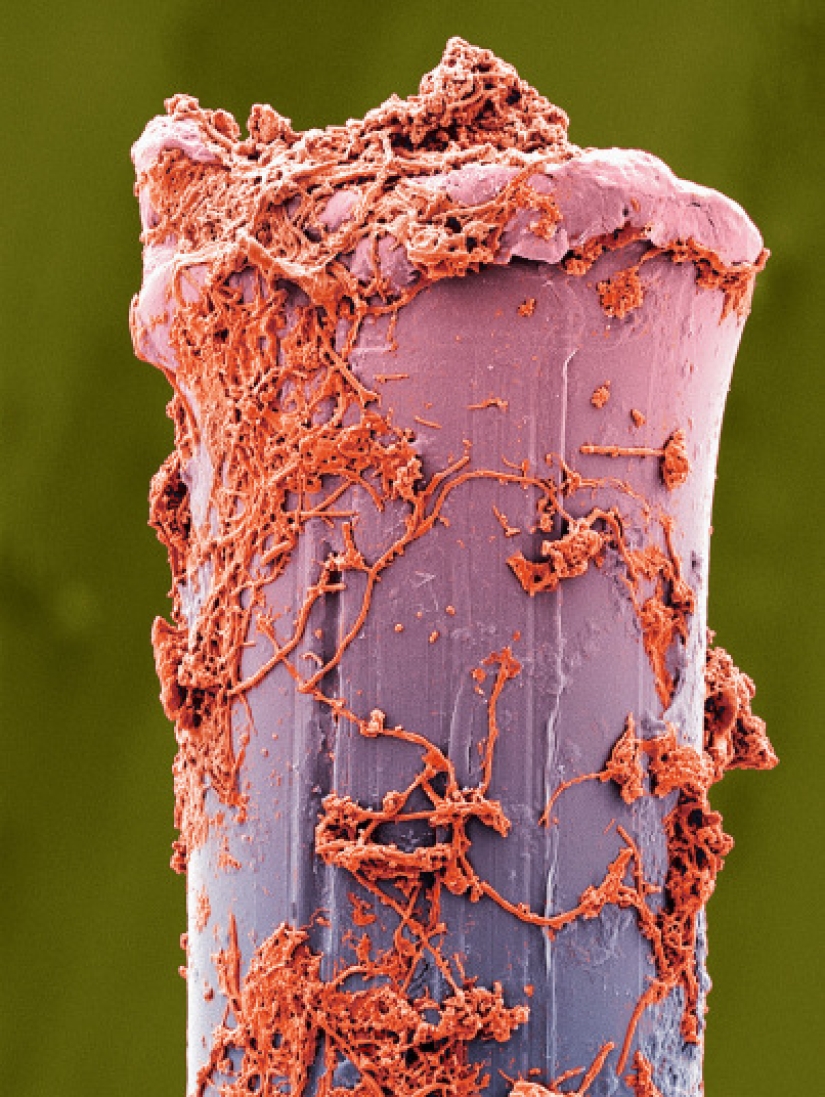
9. Toothbrush bristles covered with plaque. After each brushing, you should thoroughly rinse the brush to remove plaque and toothpaste particles. It is recommended to dry the brush in an upright position. Closing the brush head with a special cap promotes the accumulation of moisture and the growth of microorganisms.
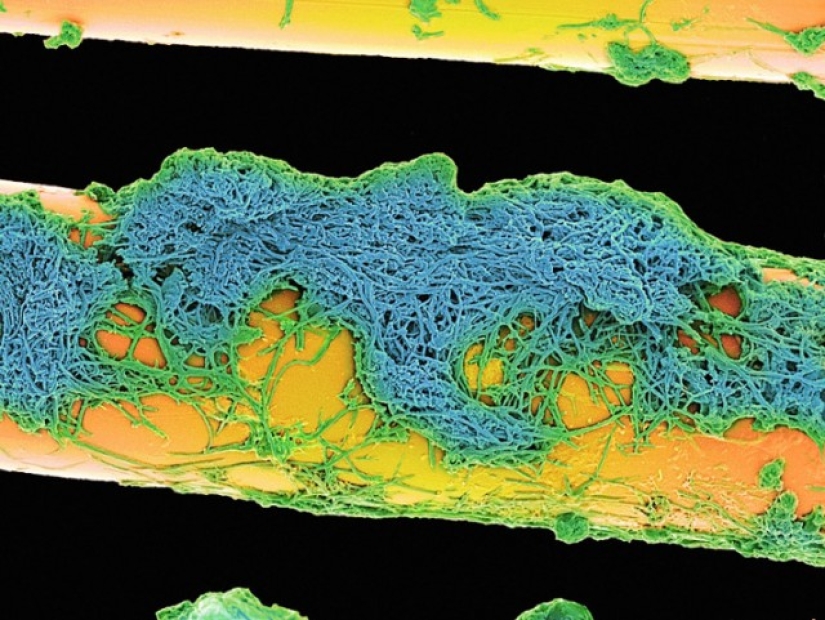
10. Dental plaque on the surface of the toothbrush. Magnification 750 times.
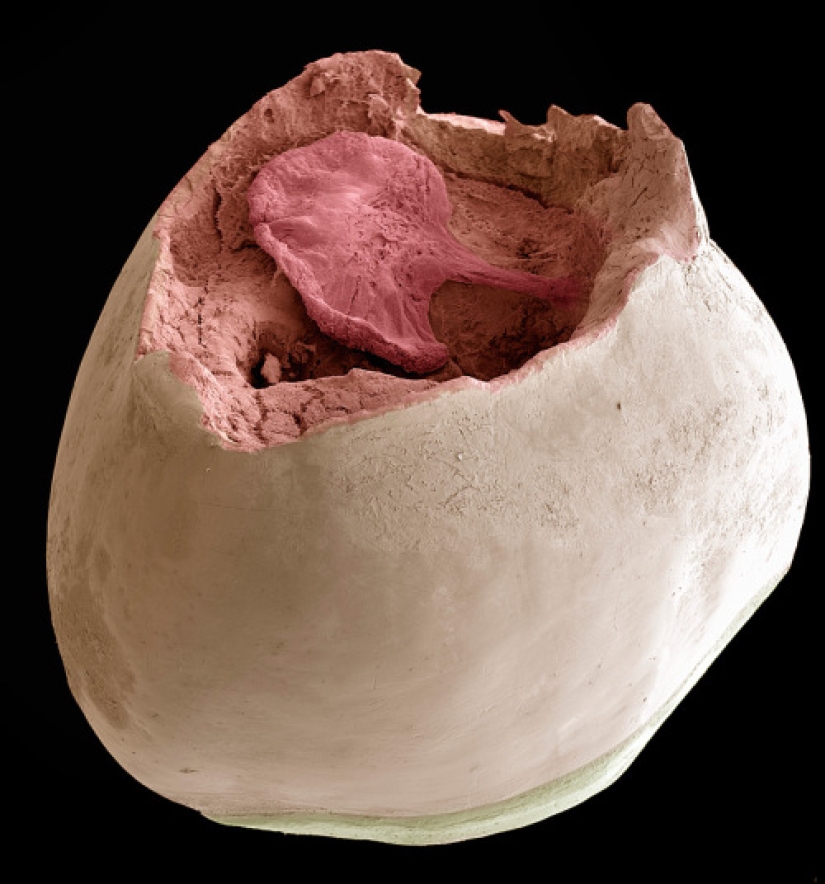
11. Milk tooth.
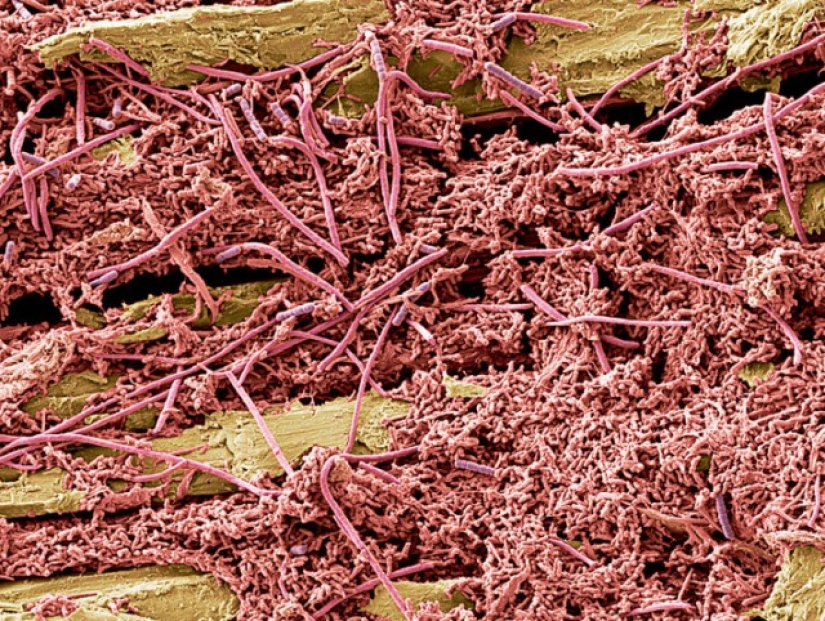
12. Bacteria of the oral cavity. Increase X1000.
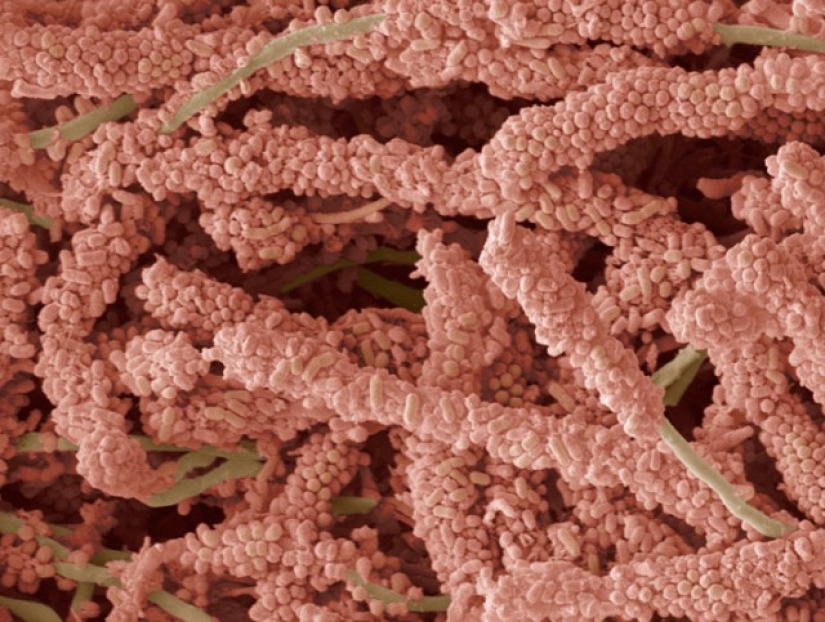
13. Bacteria.
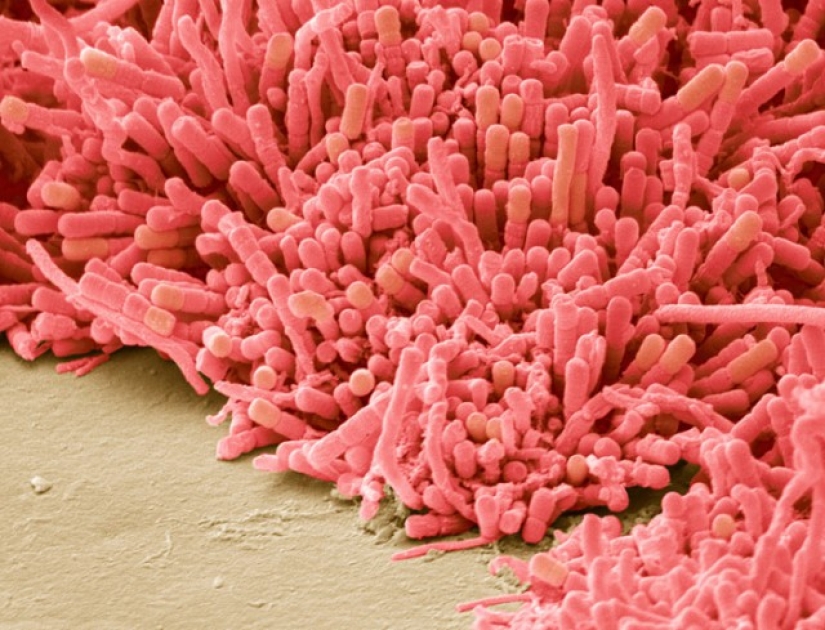
14. Bacteria of the oral cavity. Magnification x10000
Keywords: Mouth | Organism | Bacteria | People | Human body | Pictures | Microorganisms | Inhabitants | Microscope | Oral hygiene
Post News ArticleRecent articles

It's high time to admit that this whole hipster idea has gone too far. The concept has become so popular that even restaurants have ...

There is a perception that people only use 10% of their brain potential. But the heroes of our review, apparently, found a way to ...
Related articles

"Wash your hands before eating!" — a phrase familiar to us since childhood. The parents explained that with the help of this ...

Lauren Wasser (Lauren Wasser) once lived an ordinary life. She worked as a model, played basketball in her spare time, sometimes ...

Many people underestimate the effect of bacteria on the body, and they are both "good" and "evil". These microorganisms are not ...

New Year's is a time to surprise and delight loved ones not only with gifts but also with a unique presentation of the holiday ...